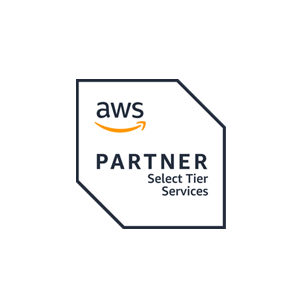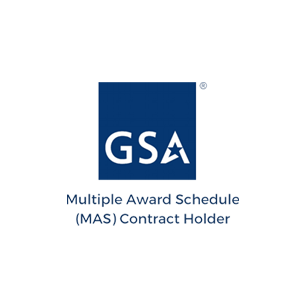15 Dec How to Pick a Cybersecurity Vendor: A Guide for Government Agencies
 According to a 2024 GAO report, federal agencies reported over 30,000 IT security incidents in FY 2022. “Risks to our nation’s essential technology systems are increasing,” the report’s authors wrote. “Such attacks could result in serious harm to human safety, national security, the environment, and the economy.”
According to a 2024 GAO report, federal agencies reported over 30,000 IT security incidents in FY 2022. “Risks to our nation’s essential technology systems are increasing,” the report’s authors wrote. “Such attacks could result in serious harm to human safety, national security, the environment, and the economy.”
Another report last year indicated a “sudden surge” in attacks against government agencies. “With limited resources and immature cyber defense programs, these organizations are struggling to defend against the double-pronged threat of both nation states and cybercriminals,” said Ismael Valenzuela, vice president of threat research and intelligence at Blackberry, at the time.
In other words, the need for credible, effective cybersecurity has never been greater. For CTOs at government agencies, selecting the right third-party technology vendors for cybersecurity services is crucial. Yet, it has also never been harder to find vendors who can successfully deliver on the promises they make. Here’s a checklist of must-haves for governmental cybersecurity vendors to ensure your agency’s security and compliance.
1. Look for Proof Points of Best-in-Class Cybersecurity Services
The vendor must offer a comprehensive suite of best-in-class cybersecurity services that have been proven effective in the field. It’s essential that these services are not just theoretically sound but have been successfully implemented by some of the largest government organizations in the country. This includes services such as threat detection and response, vulnerability management, incident response, and security monitoring.
A track record of successful deployments in similar government settings provides assurance that the vendor’s solutions can meet your agency’s specific needs. Look for evidence of past success. This can include customer references and testimonials, case studies that demonstrate accomplishments, thought leadership content that showcases expertise, and more.
2. Verify Experience as a Government Contractor
Experience matters when dealing with governmental cybersecurity. Government agencies can sometimes have vastly different risk profiles and cybersecurity requirements than private organizations. The vendor should be a seasoned and experienced government contractor with an intricate understanding of the unique challenges and requirements of federal, state, and local agencies.
This includes familiarity with government-specific regulations, compliance standards, and the intricacies of working within the governmental framework. Such experience ensures that the vendor can navigate the complexities of governmental cybersecurity.
3. Seek General Services Administration (GSA) HACS SIN Availability
Ideally, the vendor should be available via the General Services Administration’s (GSA) Highly Adaptive Cybersecurity Services (HACS) Special Item Number (SIN). This designation indicates that the vendor has met stringent requirements and has been vetted for quality and reliability. In other words, much of the due diligence the agency would need to do will have already been completed.
Plus, utilizing vendors available through the GSA’s HACS SIN can dramatically streamline the procurement process and reduce associated costs, even as it ensures that you are working with a provider that has been pre-approved by a trusted governmental body.
4. Look for Highly Trained and Cleared Cybersecurity Professionals
The vendor should employ a virtual army of highly trained and experienced cybersecurity professionals, with at least some of these already holding clearances to work in sensitive or classified environments. This ensures that the vendor can handle the most sensitive aspects of your cybersecurity needs, providing peace of mind that your agency’s data and systems are in capable hands. Operationally, if your vendor can handle the most delicate and protected scenarios from the start, it will greatly ease the onboarding and implementation process for any services they are providing.
5. Demand Accessibility
Studies have found that cyberattacks are more common during nights and weekends. For example, over three-quarters (76%) of ransomware attacks hit in the evening or after the workweek. Bad actors know when professional organizations are at their least staffed and most vulnerable. In turn, that means your cybersecurity vendor must be able to guarantee availability and speedy response even outside of normal working hours. Scrutinize the Service Level Agreements (SLAs) that the cybersecurity vendor offers and favor those that make themselves accessible to respond to cyber threats at any time of the day or week.
In the end, selecting the right cybersecurity vendor for governmental agencies involves a careful evaluation of their services, experience, and the expertise of their personnel. By adhering to this checklist, CTOs can ensure they choose a vendor capable of safeguarding their agency against the ever-evolving landscape of cyber threats.
About PSL
PSL is a global outsource provider whose mission is to provide solutions that facilitate the movement of business-critical information between and among government agencies, business enterprises, and their partners. For more information, please visit or email info@penielsolutions.com.










